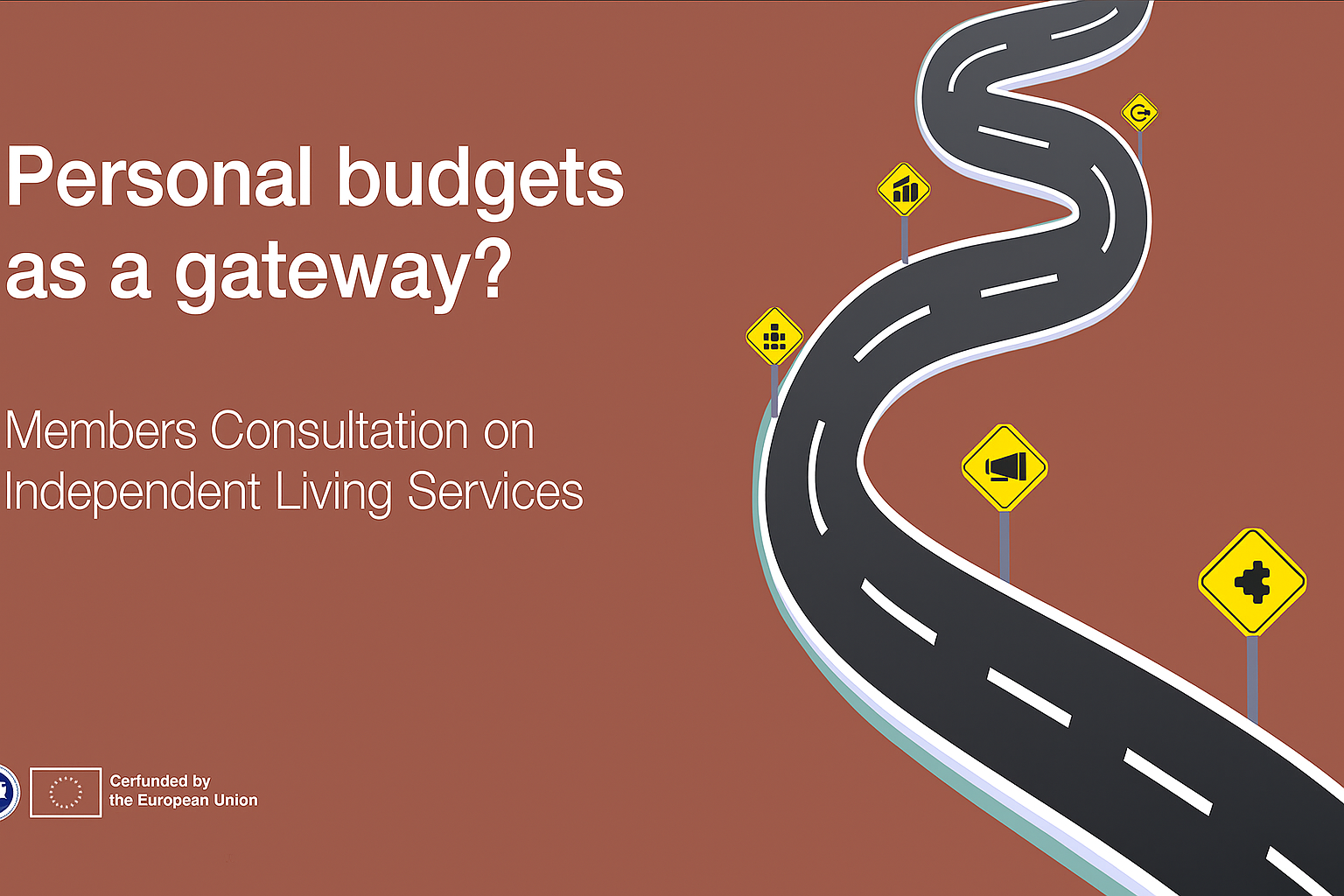After co-hosting a seminar on the topics of the UN Open Ended Working Group on Ageing in April and ENIL’s submission to the working group, AGE Platform Europe continued the conversation at their Annual Conference on June 6th. ENIL was again represented by EVS Volunteer Miriam Graute and Advocacy Officer Frank Sioen to ensure that the disability voice is heard and that the expertise of the Independent Living Movement and the UN CRPD are applied to people of all ages.
After an introduction in which AGE President Johansen emphasized the importance of autonomy and independence, Dr Peter Lloyd-Sherlock presented his work on independent living for old people in developing countries. There, he identified several barriers, including low income (in some places, institutional care is state-funded, while community based services not so much), the assumption that the family will provide care and the practice of ‘granny dumping’: institutionalising an elderly relative to obtain their property. In one of his studies, he found that only a small minority of elderly homes in Argentina needed the consent of the person before taking them into the home. He concluded that, while states might provide income security, they do not protect the autonomy and independence of older people. He also referred to similar findings in Europe and the need to address this.
Breakout sessions followed after lunch, including one on “Older people’s rights to autonomy and independence: legal capacity, independent living and participation in the community”. Here, Frank highlighted that personal and needs based support are a determining factor for Independent Living, not age or any other label.
Chris Roberts, an expert by experience with dementia and two other invisible disabilities, gave an overview of how this life-changing condition affects him and the difficulties in finding the right support. Even though support exists in his native Wales, the medical system was little use in guiding him towards it. He also emphasised the need to take the focus away from the condition of dementia and focus more on the benefit of an inclusive environment. For example, it is better for him to be travelling than staying at home. While traveling, the stress and stigma of not knowing where the bathroom is or who all the other people are, do not exist. Getting the support to discover and access his rights made it possible for Chris to continue to live a full live based on his own decisions.
A discussion on the right to legal capacity regardless of old age (in accordance with Art. 12 of the CRPD) highlighted that this was a difficult concept for the audience to understand. The topic of assisted decision making seem to scare some persons, who argued that legal capacity should be taken away by a court in some cases to protect the people and society. There was an interesting discussion between the panel and the audience about the value of a CRPD-consistent approach to legal capacity and supported decision making, to ensure that all people can exercise their rights equally. The importance of an inclusive environment was clearly noted in the conclusions of the conference. This is the first step of many to make sure all people, regardless of age, disability or any other label can live independently, make their own choices and be in control over their life.


